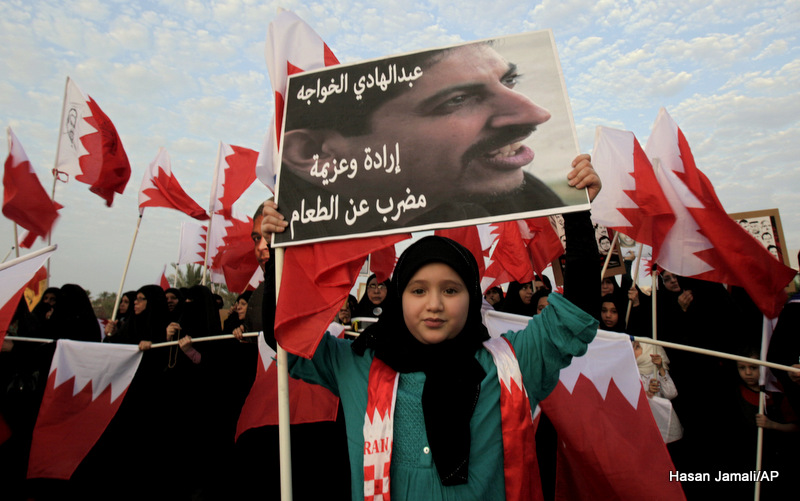
 Reports:
Reports:
Reports from Bahrain suggest that attempts to find a political solution or establish a meaningful political dialogue in the country have reached a deadlock, as the king continues to stand firm in his position and refuses to take the opposition’s demands into consideration.
Bahraini King Hamad bin Issa al-Khalifa has closed the door to finding a political solution to the crisis that has been plaguing the tiny country since 2011, by calling for signing a five-article plan which, according to knowledgeable opposition sources, would “allow him to evade political challenges.”
The sources confirmed that the king “dictated more ideas that would give him the right to control all political aspects of the country on the executive, legislative and judicial levels, and to lead the security institutions in a hardline manner, shutting the door on any dialogue and communication, while imposing a totalitarian political project that would prevent Bahraini citizens from expressing themselves.”
The sources warned that King Hamad “took an individual decision that will go down in history as the worst in his political career when he decided to ignore all internal and foreign calls and political initiatives that sought a political solution to relieve tensions and put an end to the political strife between himself and the majority of his people who have been holding protests against him since February 14, 2011 in the framework of the so-called Arab Spring in Egypt, Tunisia and other countries.”
They explained that the king’s decision “follows about eight months of dialogue, [political] pressure, and initiatives, including an initiative led by US diplomat Tom Malinowski, assistant secretary of state for democracy, human rights and labor who was expelled from Bahrain last July.”
Many scenarios, ideas, and political solutions were suggested during this period, all promoting a consensus between the king and the opposition represented by a number of political powers, most prominently al-Wefaq Society.
Consequently “Crown Prince Salman bin Hamad al-Khalifa, the king’s son and Khalid bin Ahmed al-Khalifa, minister of the Royal Diwan, launched a series of dialogues, which only led to more inflexibility by the king who rejected all initiatives and ideas and took the decision to continue with his policy of monopolizing power and tyranny,” the sources said.
“The Royal Diwan presented a paper consisting of five rather obscure articles to a number of figures on Tuesday, after calling them Monday midnight, requesting their presence at the crown prince’s diwan,” the sources revealed, adding “these figures met with the crown prince who read the five articles, requesting that they sign the paper and comply with it.”
The sources warned that the five-article plan suggests that the status-quo would remain without any political prospects, and that it would further promote social inequality, discrimination and human rights violations.
The articles are as follows:
1- The electoral law: Changes in constituencies cannot be described as fair for citizens, since the new law will neither adopt the one constituency nor the five constituencies system. It also excludes the one man one vote rule. The king will settle to some slight changes that he believes are more balanced, as expressed by the crown prince.
2- The legislative branch: The Shura (consultative) Council will remain intact, with the king naming its 40 members – the same number forming the elected council – and they will both have the same legislative authorities. The prime minister cannot be interrogated by the councils, who will only be able to interrogate the ministers under complicated restrictions, and they may be allowed to raise questions to the prime minister only.
3- The government formation: The king designates a prime minister without any involvement from parliament. The government is completely selected by the king since he solely designates the prime minister.
Interestingly, the king’s plan stipulates that in case the parliament refuses the government’s work plan three times, the parliament is to be dissolved and a new legislature is elected instead.
4- The judiciary: The king will be the head of the judicial power with the judicial body remaining intact, under the absolute control of the king. However, it has been suggested to improve the judiciary by resorting to international experts for training purposes.
5- Security institutions: The door will remain closed to citizens wishing to work in security institutions as the latter have their own military restrictions and the military institutions have firm restrictions; only the law determines who is allowed to join these institutions.
The information revealed that the individuals who attended the meeting felt a threatening tone, and a demand to sign the document without discussing its proposed articles. They believe this action completely closes the door on any dialogue and further escalates the political crisis in Bahrain.

